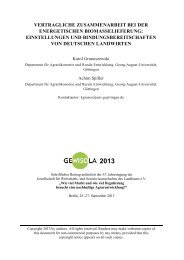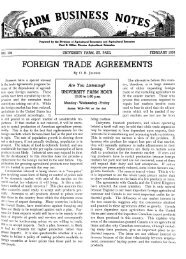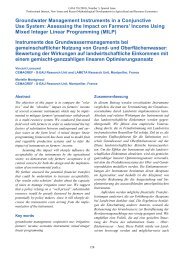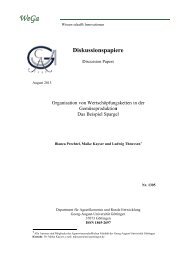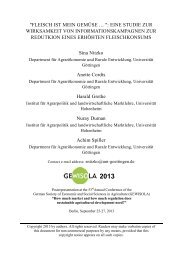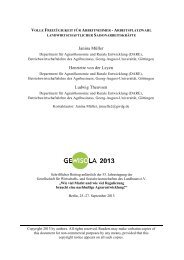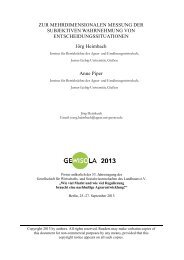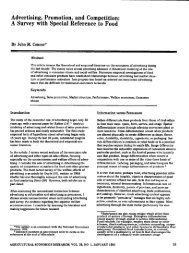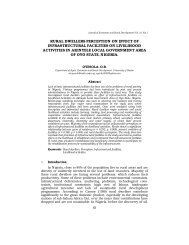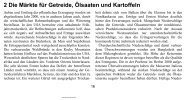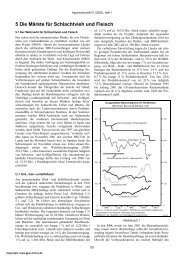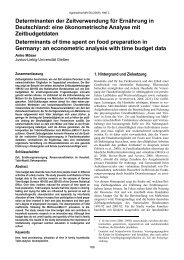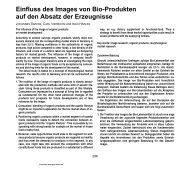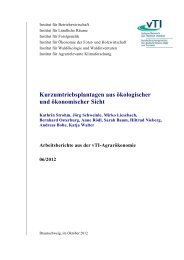District Institutes of Education and Training - Teacher Education
District Institutes of Education and Training - Teacher Education
District Institutes of Education and Training - Teacher Education
Create successful ePaper yourself
Turn your PDF publications into a flip-book with our unique Google optimized e-Paper software.
<strong>District</strong> <strong>Institutes</strong> <strong>of</strong> <strong>Education</strong> <strong>and</strong> <strong>Training</strong>: A Comparative Study in Three Indian States<br />
• None <strong>of</strong> the training programmes observed had a strong focus on children’s<br />
learning <strong>and</strong> children’s achievements: they were geared towards providing<br />
teachers with information, knowledge, <strong>and</strong> activities. The end is, in this way,<br />
subsumed by the means. Aspects <strong>of</strong> learning, <strong>and</strong> promoting learning, could be<br />
stressed in programme formulation, for example by providing learning<br />
objectives for training sessions that are shared with trainees <strong>and</strong> form a<br />
framework for evaluation. This would model for teachers ways <strong>of</strong> doing the<br />
same things with children.<br />
10.2.6 The DIET <strong>and</strong> decentralisation<br />
Chapter Six found that funding issues were a source <strong>of</strong> tension with the State<br />
level, placing obstacles in the way <strong>of</strong> a DIET, such as Surat in the sample, that is<br />
moving towards the exercise <strong>of</strong> institutional agency <strong>and</strong> autonomy. Differing<br />
perceptions about autonomy were another key aspect <strong>of</strong> DIET-State tensions, with<br />
the DIET staff claiming a lack <strong>of</strong> freedom that State <strong>of</strong>ficials claim they have.<br />
DIETs are found to be at different stages in their capacity <strong>and</strong> will to accept the<br />
accountability <strong>and</strong> responsibility that decentralisation dem<strong>and</strong>s, <strong>and</strong> this points<br />
towards a need not only for support, but also for differentiated support, to help<br />
them develop in this direction.<br />
At the <strong>District</strong> level, DIETs are not able to take administrative sanctions over<br />
teachers, <strong>and</strong> have an advisory status only. They depend on the <strong>District</strong> <strong>Education</strong><br />
Office to second teachers for training. Current procedures lead to duplication <strong>and</strong><br />
wastage <strong>of</strong> training places, unless – or sometimes even when – a DIET deliberately<br />
cultivates good working relations, as in Surat <strong>and</strong> Indore <strong>District</strong>s. This<br />
contributes to DIET inefficiency <strong>and</strong> is costly in terms <strong>of</strong> negative impact on<br />
DIET morale <strong>and</strong> public image. Proaction by Surat <strong>and</strong> Indore DIETs greatly<br />
assisted in ensuring that <strong>Education</strong> Department <strong>of</strong>ficers were aware <strong>of</strong> the DIET’s<br />
role <strong>and</strong> <strong>of</strong> their own <strong>of</strong>fice in supporting it. Institutional reform in Madhya<br />
Pradesh is likely to improve these aspects <strong>of</strong> internal efficiency significantly.<br />
Cluster Resource Centres experienced similar tensions to DIETs in respect <strong>of</strong><br />
having only an advisory role. Focus group discussions with Resource Centre staff<br />
in Santrampur <strong>District</strong> revealed a matrix <strong>of</strong> concerns clustered around structural<br />
constraints, impressions <strong>of</strong> teachers’ pedagogical shortcomings; sense <strong>of</strong> their own<br />
pedagogical challenges; issues relating to community interactions. These Resource<br />
Centres are the ‘outreach’ faculty <strong>of</strong> the DIET, but only in Surat, Indore <strong>and</strong><br />
Masuda DIETs did the staff see it as part <strong>of</strong> their m<strong>and</strong>ate to support the<br />
development <strong>of</strong> these personnel’s skills. In the DPEP <strong>District</strong>s, a ‘parallel’ structure<br />
which tended to bypass the DIET created a separation between the DIET <strong>and</strong> the<br />
resources it needs to reach out effectively.<br />
DFID 197



